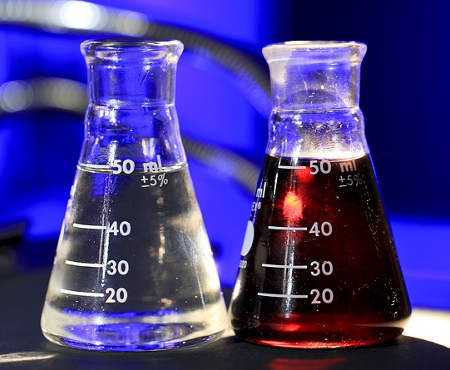 Ask three different people and you will most likely get three different answers, Answers may range from science is everything, to science is a man in a lab coat, to its new technology. I also see many different definitions of what science is on the Internet and I have included some links to them here.
Ask three different people and you will most likely get three different answers, Answers may range from science is everything, to science is a man in a lab coat, to its new technology. I also see many different definitions of what science is on the Internet and I have included some links to them here.However I will sum up science in my own words;
To me basic science is the study of the world and the universe, and all that that entails. Basic science looks to find the facts behind everything that happens around us. As professor Julius Sumner Miller used to put it, science looks for the answer to “Why is it so". In order to find the facts all science must involve observation and recording, the data is then analyzed to extract its meaning. In order for science to be “good science” it must use proper scientific method.
This leads on to the rather bland dictionary meaning of “science” as the accumulated and established sum of knowledge this is proven to be fact, or what in science circles is often referred to as scientific knowledge.
In modern times the application of learned science to real world applications (technology,etc), often referred to a “applied science” has also become identified with the word “science” and so another meaning for science is now also the use of scientific knowledge in a practical application.
Types of Science
The wide variety of different sciences give some idea of the wide scope of scientific study which includes;
1. The classical sciences:- These are the ones that most people will identify easily as sciences and they are also known as the Natural sciences. They include sciences like;
- Physics - The study of laws of nature.
- Chemistry - The study of matter and it properties
- Geology - The study of the natural materials that make the earth and the universe
- Biology - The study of living organisms
2. The Social Sciences:- These are specifically concerned with development of humanity and its interactions, These include sciences like;
- Anthropology
- Sociology
- Communication Science
- Psychology
- Linguistic Science
- Geographical Sciences
The impacts of Science
Science and it impacts can be defined in three basic ways;
A. Scientific Research
This is the basic science that I referred to above and involves the use of the scientific method to search for new knowledge and facts in our world and the universe. The difference between scientific research and any other form of research involves the strict method which must be adhered to in order for the knowledge gained to be considered a scientific fact. Scientific research of itself creates nothing, but seeks to understand all, and in enlarging our knowledge base it leads to the discoveries that can be then used in applied science.
B. Applied Science
Also extremely important is the role played by the application of science in modern day life. Many people will identify with this more as science that scientific research itself. These applied sciences are often not about further scientific study, but rather the application of information learned from science to achieve a particular purpose or outcome. Such outcomes in the modern world include many different processes, for example;
- resource extraction, processing and manufacturing
- the creation of modern infrastructure
- the invention and production of new technologies
C. Scientific Jobs
A large number of jobs are directly and indirectly related to science. Many scientific jobs nowadays are often concentrated around the applied sciences (e.g. engineering), but many are also a combination of both applied science and scientific discovery (e.g. biologist), with scientific research making up the remaining scientists (e.g. astronomer).
The word science was originally derived from the Latin word "scientia" meaning knowledge, but science has gone on to become not only, the study of all that we can know as humans (research science), it has also in modern times become the application of what we can create from all this acquired knowledge (applied science). The lifestyle we have today would be vastly different in a world without the applications from scientific research. From medical breakthroughs through to the latest electronic gadgets, our world has been vastly changed through the use of science.
Copyright © Maurice on NiceAnswers.com 2017
Editor's Note: Find below other explanations of science;
The topic Science on Wikipedia, the free encyclopedia
Another explanation of "What is Science"
A definition of Science by ScienceMadeSimple.com
Yet Another explanation of "What is Science"
Nasa's explanation of "What is Science"

 Edited
Edited
Comments
There have been no comments yet